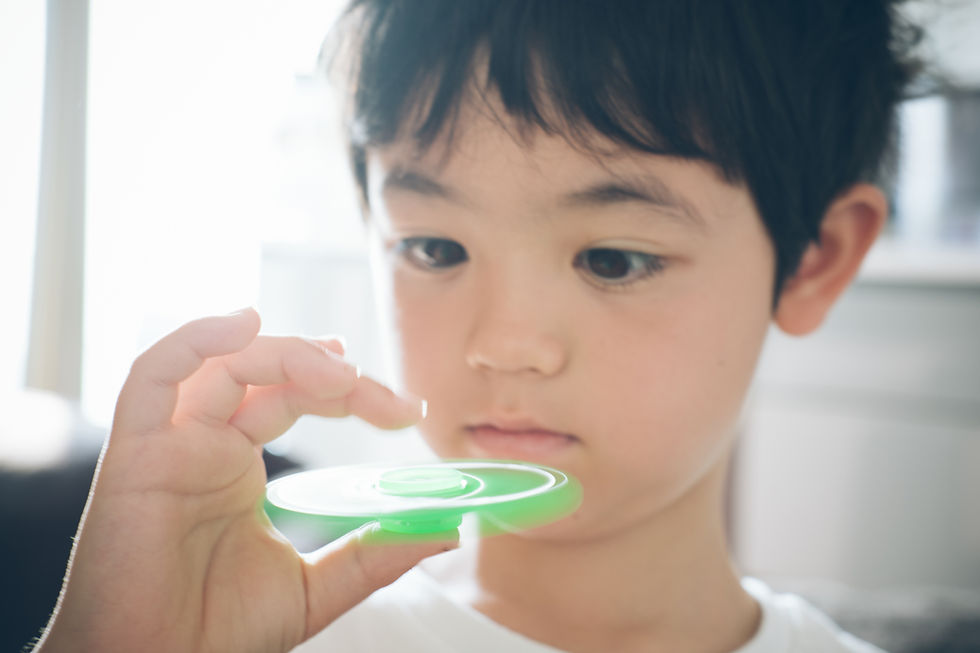"I Never Knew It Could Be This Easy": Success Stories of Adults with ADHD in Therapy
- Nick Holmes

- Jul 5, 2024
- 3 min read
Updated: Sep 25, 2024

Transforming Lives: How Talking Therapy Helps People with ADHD
Attention Deficit Hyperactivity Disorder (ADHD) is a complex neurodevelopmental condition that impacts millions of people worldwide. Characterized by symptoms such as inattention, hyperactivity, and impulsivity, ADHD can pose significant challenges in everyday life.
While medication is a common treatment, talking therapy, also known as psychotherapy, offers valuable tools and strategies for managing ADHD symptoms effectively. This blog explores how talking therapy helps individuals with ADHD, detailing the issues they face and sharing inspiring real-life success stories.
Daily Challenges of ADHD
Individuals with ADHD often grapple with a range of issues that can interfere with their personal and professional lives:
1. Inattention: Struggling to maintain focus, follow through on tasks, and organize activities.
2. Hyperactivity: Difficulty sitting still, feeling restless, and talking excessively.
3. Impulsivity: Making quick decisions without thinking about the consequences, interrupting conversations, and struggling with self-control.
These challenges can lead to academic underachievement, strained relationships, low self-esteem, and employment difficulties.
The Role of Talking Therapy
Talking therapy offers a structured approach to address the specific needs of those with ADHD. Various therapeutic techniques, including Hypnotherapy and Cognitive Behavioural Therapy (CBT), can make a significant difference. Here’s how:
1. Developing Organizational Skills: Therapy helps individuals create effective systems for managing time and tasks, such as using planners, setting reminders, and breaking tasks into smaller, manageable steps.
2. Enhancing Emotional Regulation: Techniques like mindfulness and CBT teach individuals to recognize and manage their emotions, reducing feelings of frustration, anxiety, and impulsivity.
3. Boosting Self-Esteem: Therapists work with clients to identify and challenge negative thought patterns, promoting a more positive self-image and confidence.
4. Improving Social Skills: Therapy can help individuals learn better communication techniques, understand social cues, and build stronger relationships.
5. Building a Support Network: Group therapy and family therapy create a supportive environment, fostering understanding and reducing feelings of isolation.
Real-Life Success Stories:
Jessica’s Journey
Jessica, a 28-year-old marketing executive, faced significant challenges due to her ADHD. She struggled to keep track of deadlines, felt overwhelmed by her workload, and experienced frequent conflicts with colleagues because of her impulsive remarks.
Through talking therapy, Jessica learned to break her tasks into manageable chunks and use a digital calendar to stay organized. Her therapist introduced mindfulness techniques, helping her pause and think before speaking. Over time, Jessica’s work performance improved, and she built stronger, more positive relationships with her coworkers.
Tom’s Transformation
Tom, a 15-year-old high school student, experienced academic difficulties and social isolation because of his ADHD. He was easily distracted in class, struggled with homework, and felt like an outsider among his peers.
Talking therapy helped Tom develop effective study habits and organizational skills, such as using color-coded notebooks and setting aside specific times for homework. His therapist also worked on social skills, teaching him how to start conversations and read social cues. As a result, Tom’s grades improved, and he began to form meaningful friendships, boosting his confidence and overall happiness.
Maria’s Revival
Maria, a 40-year-old mother of two, had long struggled with undiagnosed ADHD. She often felt overwhelmed by household responsibilities and found it hard to manage her time effectively, leading to constant stress and feelings of inadequacy.
In therapy, Maria learned techniques for time management and reducing clutter in her home. Her therapist helped her address negative self-talk and build a more compassionate view of herself. With these tools, Maria became more organized, felt less stressed, and started to enjoy her role as a mother more fully.
Conclusion
Talking therapy can be a transformative tool for individuals with ADHD, helping them navigate the unique challenges they face in their daily lives. By improving organizational skills, enhancing emotional regulation, building self-esteem, and fostering better social interactions, therapy empowers people with ADHD to lead more fulfilling and successful lives.
The stories of Jessica, Tom, and Maria illustrate the profound difference talking therapy can make, offering hope and practical solutions to those affected by ADHD. Whether dealing with academic, professional, or personal challenges, talking therapy provides the support and strategies needed to thrive despite the obstacles posed by ADHD.
A couple of ways we can help:
Get access to our free guided relaxation to help calm the mind and reduce anxiety.
Contact us today for your free 15-minute discovery call where we can explain how we can help and answer any questions you may have.




Comments